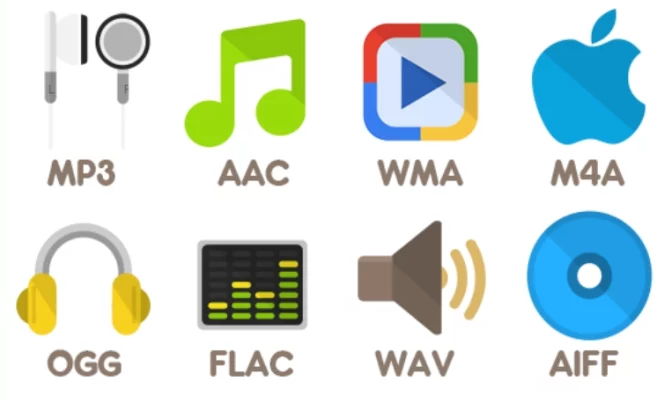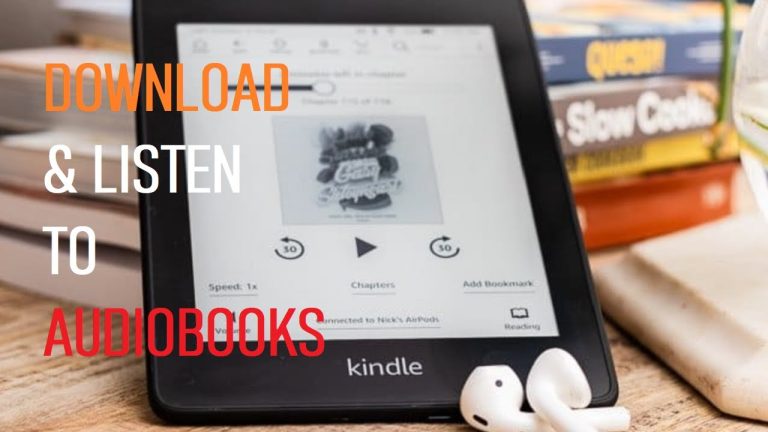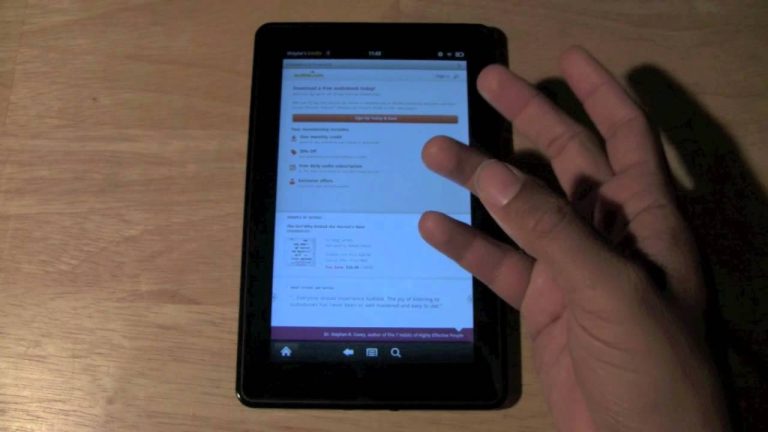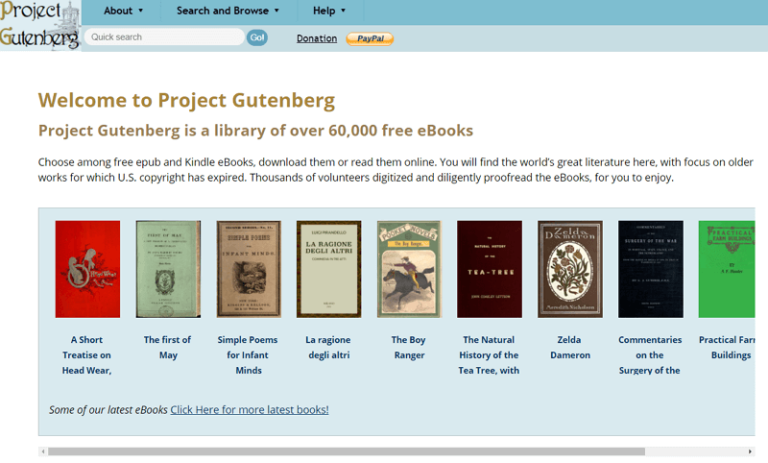What Format Is Audiobook?
Audiobooks have become increasingly popular in recent years, allowing people to enjoy their favorite books on the go. But have you ever wondered, “What format is an audiobook?” Well, you’re in luck because I’m here to shed some light on this topic. So, grab a cup of coffee, sit back, and let’s dive into the fascinating world of audiobook formats!
When it comes to audiobooks, there are a few different formats to choose from. The most common format is MP3, which is widely compatible with various devices such as smartphones, tablets, and computers. MP3 files are compressed, meaning they take up less storage space while still maintaining excellent audio quality. This format allows you to easily transfer and listen to your audiobooks wherever and whenever you want.
Another popular format is AAC (Advanced Audio Coding), which offers even better sound quality than MP3. AAC files are often used by platforms like Apple and Audible, providing a crisp and immersive listening experience. Additionally, there are formats like WMA (Windows Media Audio) and FLAC (Free Lossless Audio Codec), each with their own unique features and benefits. So, whether you’re a tech-savvy audiophile or simply looking for a convenient way to enjoy books, there’s an audiobook format out there that’s perfect for you.

Understanding the Format of Audiobooks
Audiobooks have revolutionized the way we consume literature, allowing us to enjoy our favorite books through the power of audio. But have you ever wondered what format audiobooks come in? In this article, we will explore the different formats that audiobooks are available in, from physical CDs to digital downloads, and how each format impacts our listening experience.
Physical Formats: CDs and Cassettes
Before the digital age, audiobooks were primarily available in physical formats such as CDs and cassettes. These formats allowed users to play the audiobook on dedicated CD or cassette players. CDs offered better audio quality and durability compared to cassettes, making them the preferred choice for many audiobook enthusiasts. However, both formats had limitations in terms of storage capacity, requiring multiple discs or tapes for longer books.
In recent years, physical formats have become less popular as digital audiobooks have gained prominence. Nevertheless, some audiobook enthusiasts still enjoy collecting physical copies of their favorite books in CD or cassette format, appreciating the tangible nature of these formats.
Digital Formats: MP3 and Streaming
The advent of digital technology has significantly transformed the audiobook industry. Today, digital formats, such as MP3, have become the standard for audiobook distribution. MP3 files offer excellent audio quality while providing the convenience of portability and storage efficiency. Users can easily transfer audiobooks to their smartphones, tablets, or dedicated MP3 players, allowing them to enjoy their favorite books on the go.
In addition to downloadable MP3 files, streaming services have also gained popularity in recent years. Platforms like Audible, Spotify, and Apple Books offer a vast library of audiobooks that can be streamed directly to devices with an internet connection. This eliminates the need for downloading and managing individual files, providing instant access to a wide range of titles.
The Benefits of Digital Audiobooks
While physical formats have their charm, digital audiobooks offer several advantages that have contributed to their widespread popularity. Firstly, digital formats provide a vast selection of titles, including both new releases and classic works, accessible at any time and from anywhere. Additionally, digital audiobooks often include features like bookmarks, speed control, and sleep timers, enhancing the listening experience.
Furthermore, the rise of digital platforms has made audiobooks more affordable and accessible. Subscription services and online retailers offer competitive pricing and frequent discounts, making it easier for book lovers to explore new authors and genres without breaking the bank. The convenience of immediate downloads or streaming also eliminates the need to wait for physical copies to arrive.
The Future of Audiobook Formats
As technology continues to evolve, it is likely that we will see further advancements in audiobook formats. Virtual reality (VR) and augmented reality (AR) technologies have already begun to enter the audiobook space, promising immersive and interactive experiences for listeners. These innovations have the potential to redefine the way we engage with literature, allowing us to step into the worlds of our favorite books like never before.
However, while digital formats dominate the audiobook industry, physical formats are still appreciated by a niche audience. Collectors, audiophiles, and those who enjoy the tactile experience of holding a book or CD in their hands will likely keep physical formats alive, ensuring that the diversity of audiobook formats continues to cater to different preferences.
Key Takeaways: What format is an audiobook?
1. Audiobooks come in various formats, including MP3, M4B, and WMA.
2. MP3 is the most common and widely supported format for audiobooks.
3. M4B is a format specifically designed for audiobooks and allows for bookmarking and chapter navigation.
4. WMA is another format used for audiobooks, but it is less commonly used and has limited compatibility.
5. It’s important to check the compatibility of the audiobook format with your device before purchasing or downloading.
Frequently Asked Questions
Here are some frequently asked questions about audiobook formats:
1. What are the different formats of audiobooks?
There are several different formats of audiobooks available, including:
– MP3: This format is widely supported and can be played on almost any device. It offers good sound quality and is compatible with most audiobook platforms.
– AAC: This format is commonly used by Apple devices and offers high-quality audio with smaller file sizes.
– WMA: This format is mainly used by Windows Media Player and may not be compatible with all devices.
– CD: Audiobooks on CDs are less common nowadays but can still be found. They require a CD player to listen to.
2. Which audiobook format should I choose?
The best audiobook format for you depends on your preferences and the devices you own. If you have an Apple device, AAC may be a good choice. If you prefer a widely supported format, MP3 is a safe bet. Consider the compatibility of the format with your devices and the sound quality you desire.
Keep in mind that most audiobook platforms offer multiple format options, so you can usually choose the format that suits you best.
3. Can I convert audiobook formats?
Yes, it is possible to convert audiobook formats. There are various software programs and online tools available that can convert audiobooks from one format to another. However, it’s important to note that converting formats may result in some loss of audio quality.
If you need to convert an audiobook format, make sure to choose a reputable conversion tool and follow the instructions carefully to ensure the best possible outcome.
4. Are audiobooks available in DRM-protected formats?
Yes, some audiobooks are available in DRM-protected formats. DRM stands for Digital Rights Management, and it is a way of restricting the usage of digital content. DRM-protected audiobooks are often tied to specific devices or apps and may have limitations on sharing or copying.
When purchasing audiobooks, check if they come with DRM restrictions, as this may affect your ability to transfer or listen to the audiobook on different devices.
5. Can I listen to audiobooks on my smartphone?
Yes, you can listen to audiobooks on your smartphone. Most smartphones have built-in media players or support audiobook apps that allow you to listen to audiobooks in various formats. Simply download the audiobook in the compatible format and use the media player or app to play it.
Make sure to check the supported formats of your smartphone’s media player or the requirements of the audiobook app you plan to use.
How to make your audiobook meet ACX Standards – Super Simple
Final Summary: Decoding the Format of Audiobooks
So, what format is an audiobook? We’ve explored this question and uncovered the various formats that audiobooks come in. From the widely-used MP3 format to the versatile and high-quality FLAC format, audiobooks can be enjoyed in different ways depending on your preference and the device you’re using.
When it comes to compatibility and convenience, the MP3 format reigns supreme. Its small file size and broad support across different devices make it a popular choice among audiobook enthusiasts. On the other hand, if you’re an audiophile seeking the best audio quality, the FLAC format offers lossless compression, preserving every detail of the recording.
It’s important to mention that the format of an audiobook isn’t the only factor that contributes to your listening experience. Narration quality, production value, and the story itself all play a significant role in immersing you in the world of the book. So, whether you prefer the ease of an MP3 or the pristine audio of FLAC, what truly matters is finding an audiobook that captivates and transports you.
In conclusion, the format of an audiobook can vary, and it’s crucial to choose one that suits your needs and preferences. Whether you opt for the ubiquitous MP3 format or indulge in the high-fidelity of FLAC, the magic lies in the captivating story and the narrator’s skill. So, go ahead and dive into the world of audiobooks, where imagination knows no bounds, and let the format be the gateway to your literary adventures.






